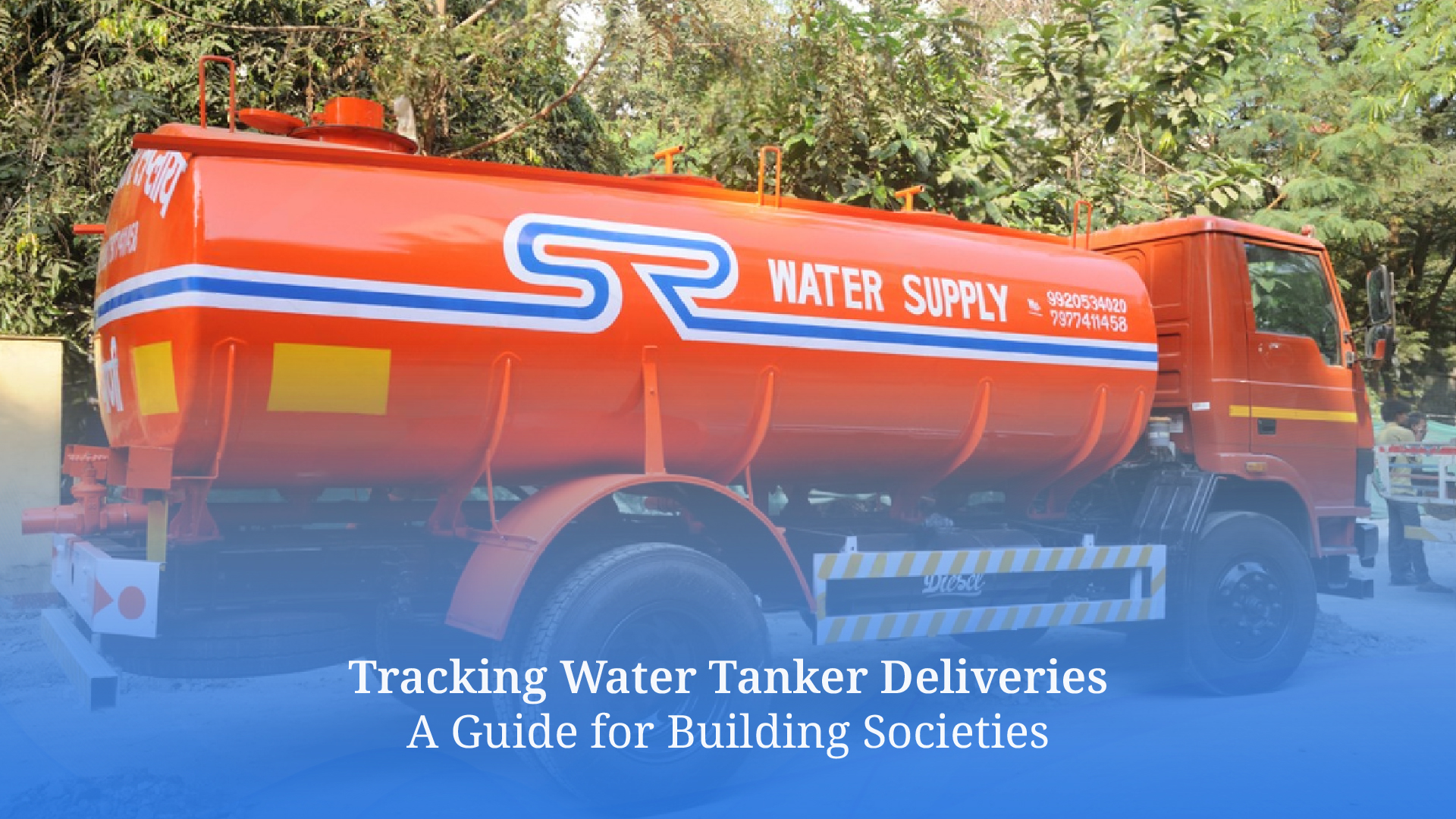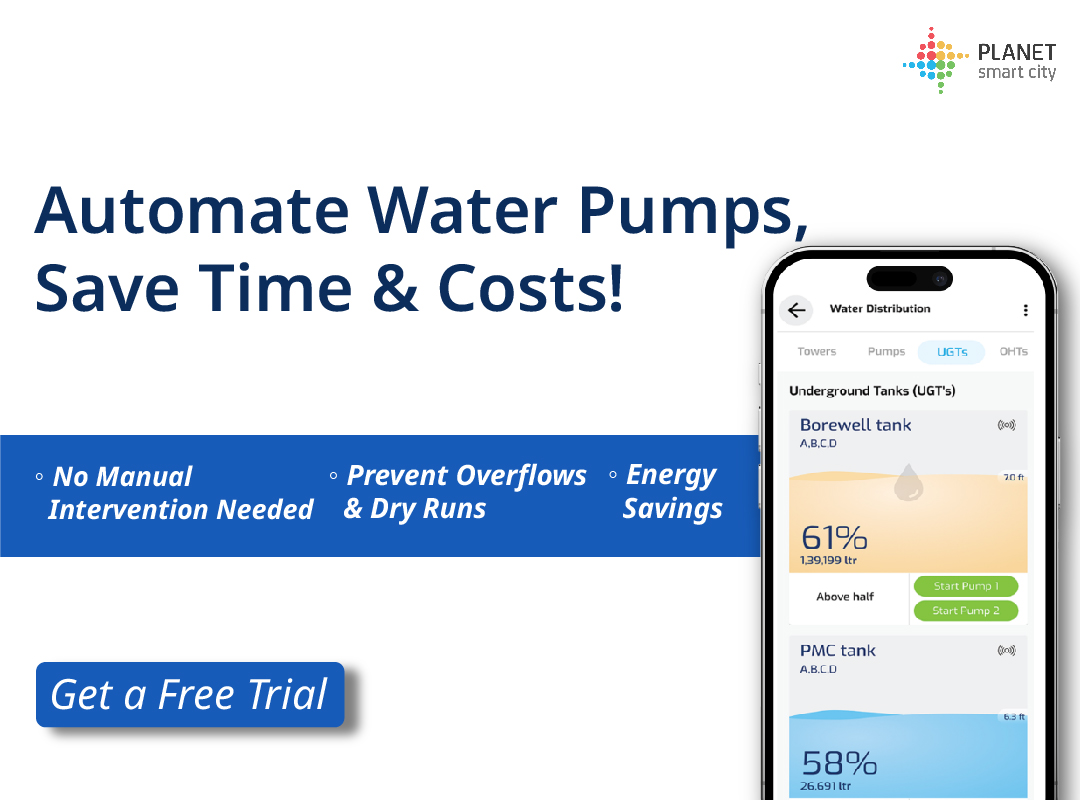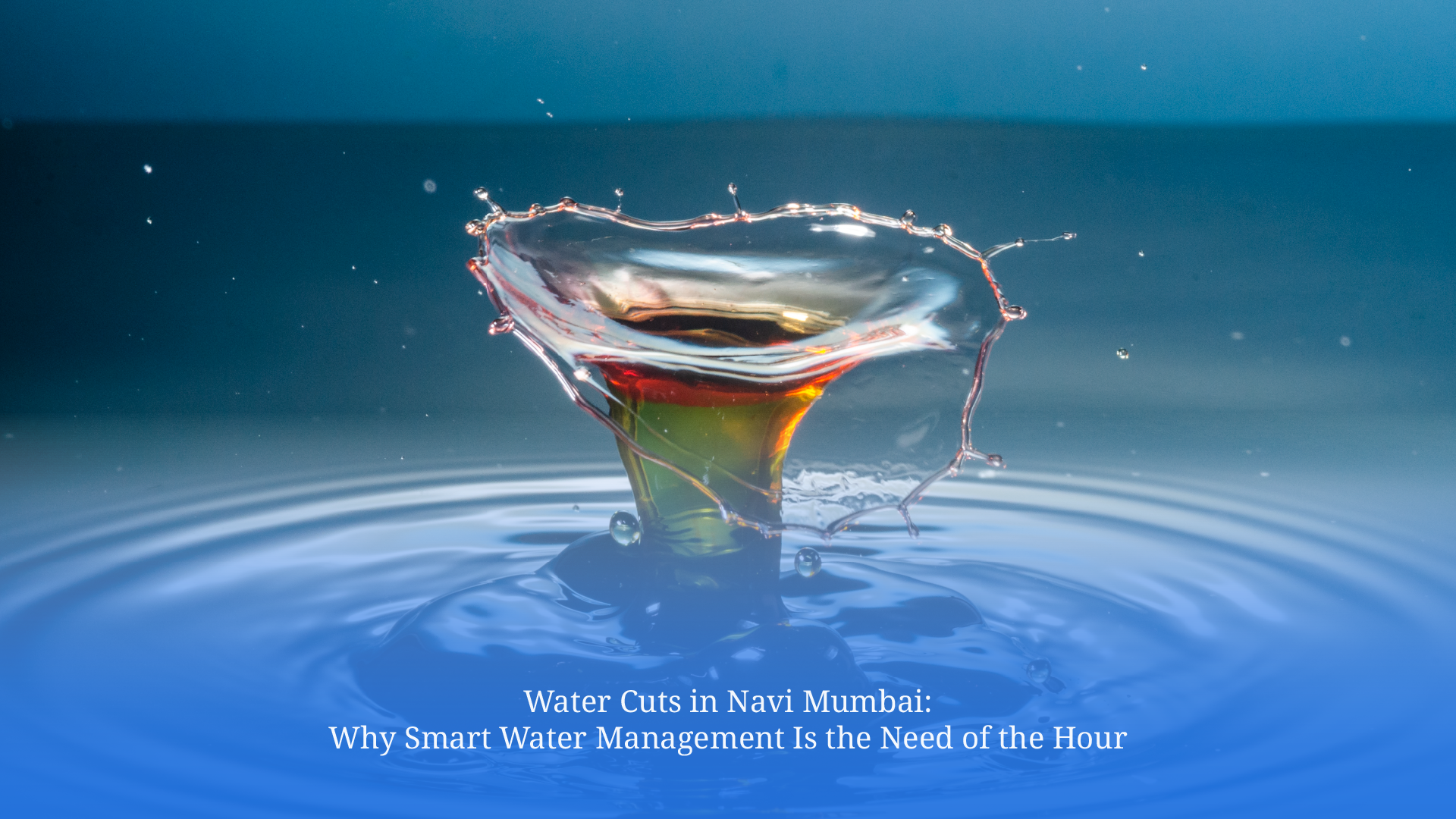Tracking Water Tanker Deliveries: A Guide for Building Societies

For many housing societies and residential communities, securing a consistent and reliable water supply is a significant challenge. With increasing urbanisation and growing demand, municipal water supply often falls short. This is what makes societies heavily dependent on private water tankers. However, managing these deliveries is far from simple.
Late arrivals, overcharging, unaccounted usage, and even water theft can lead to operational inefficiencies, financial losses, and resident dissatisfaction. Without a proper tracking system, societies struggle to maintain transparency and accountability in their water procurement.
This is where smart water management solutions come in. By digitising and automating the tracking of water tanker deliveries, societies can improve efficiency and reduce costs. Plus, it ensures every drop of water is accounted for.
The Challenges Societies Face with Water Tanker Deliveries
Managing water tanker deliveries without a structured system often results in wastage, mismanagement, and rising costs. Some of the most pressing issues include:
-
Delays and Unreliable Deliveries
Water tankers frequently arrive late or fail to show up altogether. This causes severe inconvenience to residents. Societies dependent on manual coordination often lack updates, which leads to uncertainty about when water will be available.
-
Water Theft and Misuse
Without proper tracking, societies may face unauthorised siphoning of water, either during transportation or after delivery. Water can be diverted, misreported, or wasted, leading to unnecessary expenses.
-
Lack of Transparency in Billing and Supply
Societies often struggle to verify the quantity and quality of water received. Manual recording methods make it easy for discrepancies in billing to go unnoticed. Such things often cause overcharging and financial mismanagement.
-
Poor Coordination and Communication
Many societies rely on manual logs or WhatsApp groups to coordinate deliveries, making the process inefficient. Facility managers often spend hours negotiating, tracking, and confirming deliveries. This, in turn, diverts their focus from other important tasks.
Without a smart tracking system, societies remain vulnerable to inefficiencies that increase costs and reduce service reliability.


Why Tracking Water Tanker Deliveries is Essential for Societies
To ensure smooth operations and cost efficiency, societies must implement a reliable tracking system. Here’s how it benefits them:
-
Improved Efficiency and Timely Deliveries
Keeping track of water deliveries helps societies stay ahead of shortages, avoid last-minute panic, and plan better. When every order is recorded properly, managing schedules and coordinating with suppliers becomes much easier.
-
Cost Savings and Resource Optimisation
Without proper records, societies risk overpaying for water they never received. A well-documented system helps prevent errors, keep expenses in check, and make smarter purchasing decisions for long-term savings.
-
Enhanced Transparency and Accountability
Ever faced a billing dispute? Tracking deliveries ensures clear records of water received, payments made, and supplier details. This helps societies avoid confusion, prevent fraud, and stay financially transparent.
-
Better Coordination and Simplified Management
No more relying on scattered messages or missing paperwork. A structured system makes ordering, tracking, and managing water deliveries effortless. It ensures everything is documented and easy to refer back to when needed.
Leveraging Technology to Streamline Water Tanker Deliveries
Smart cities and modern housing societies are increasingly adopting technology-driven solutions to streamline water delivery management. Some key innovations include:
-
Digitally Tracking Water Deliveries
A structured digital record-keeping system allows societies to log deliveries, track quantities received, and verify supplier details. This helps maintain accurate records and reduces the risk of billing discrepancies.
-
Ordering and Managing Deliveries with Ease
Placing orders through calls, WhatsApp, or SMS from a structured system ensures better coordination with suppliers. Societies can track delivery schedules and avoid miscommunication that leads to unnecessary delays.
-
Structured Documentation for Financial Oversight
Maintaining a clear, structured log of water procurement helps societies verify invoices, ensure correct payments, and track expenses. This, in turn, reduces financial mismanagement and improving budgeting for future needs.
-
Analysing Water Usage for Smarter Planning
Tracking past deliveries and water consumption helps societies identify trends, optimise orders, and prevent shortages. With structured data, they can plan better and avoid over-ordering or unnecessary wastage.
How Smart Cities Help Overcome Water Delivery Challenges
Planet Smart City is at the forefront of smart water management. We offer innovative solutions that help societies improve transparency, enhance financial accountability, and optimise record-keeping in their water procurement processes.
One of our key solutions is our platform, Planet SIM, which supports structured documentation of water deliveries. Here’s how it helps societies maintain better oversight:
- Structured Delivery Logging: Societies can manually record tanker deliveries, ensuring every transaction is properly documented.
- Digital Record-Keeping: Every delivery is logged digitally, reducing paperwork and improving accessibility.
- Water Consumption Monitoring: Societies gain insights into historical water usage trends, helping them plan future procurement efficiently.
- Billing Verification: Planet SIM helps facility managers verify the amount of water received against invoices, ensuring accurate payments.
- Seamless Integration with Smart City Solutions: The system integrates with other Planet Smart City technologies, supporting a more transparent and organised approach to urban water management.
With Planet SIM, societies can maintain accurate records of water deliveries, prevent billing discrepancies, and enhance financial oversight. Investing in structured documentation today paves the way for better-managed, cost-efficient water procurement in the future.
Popular Searches
why manual water pump is outdated | water delivery challenges | save water in summer| water shortages in building | water wastage in resident | automated water pump | cost of water wastage on society | holi save water | gbs virus in pune




